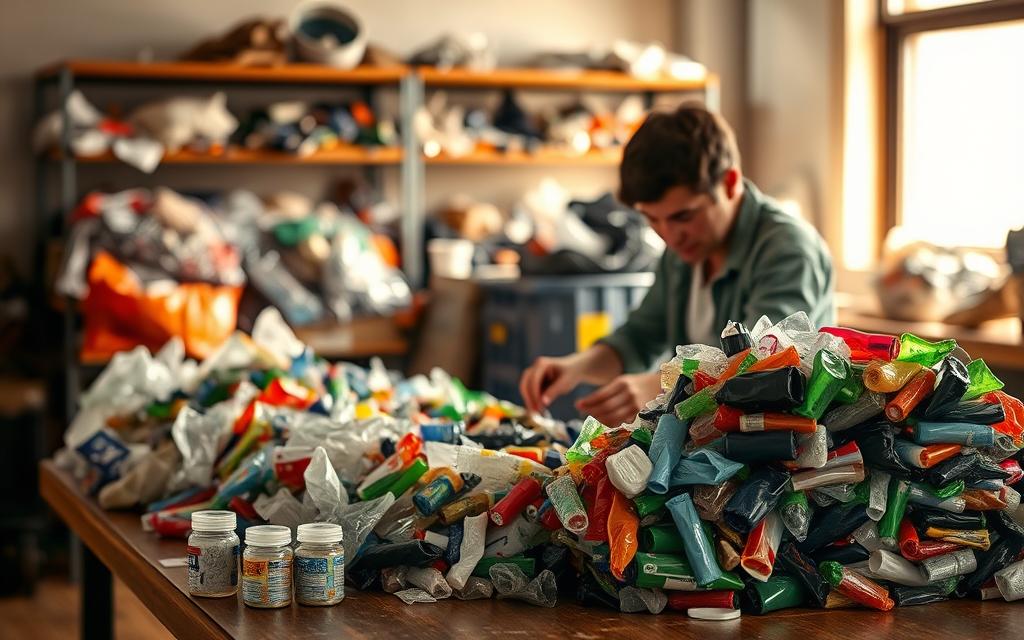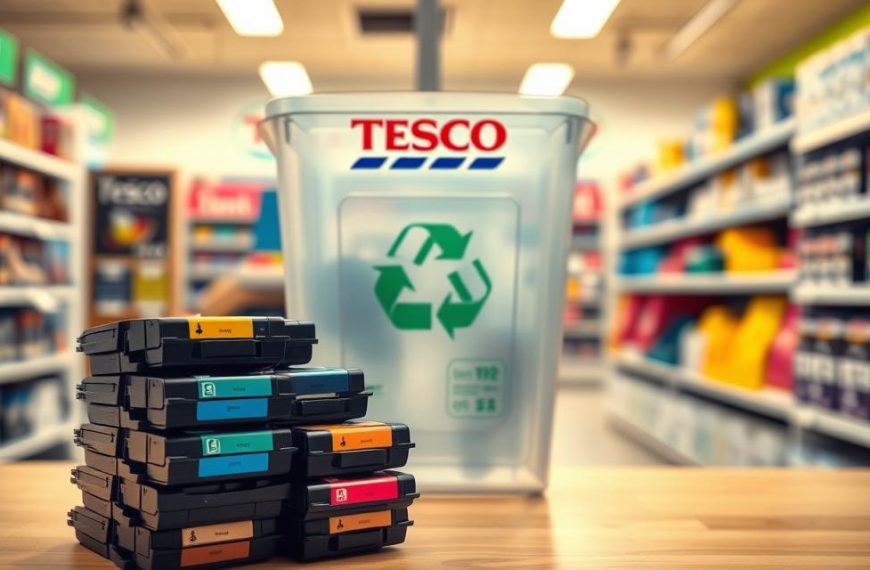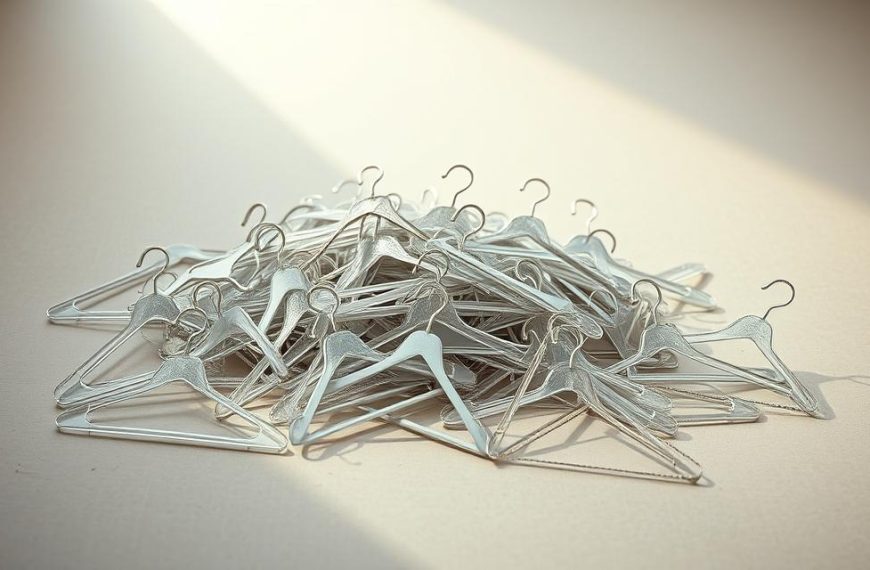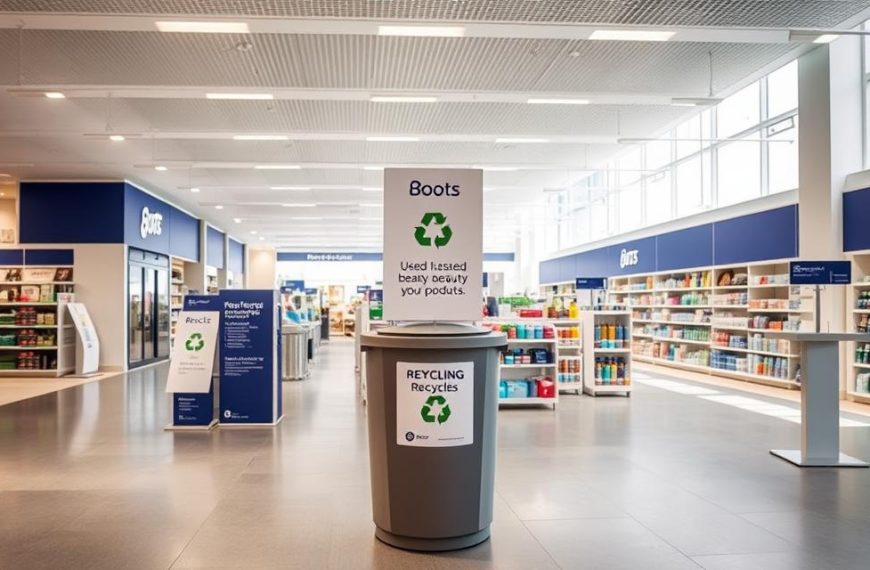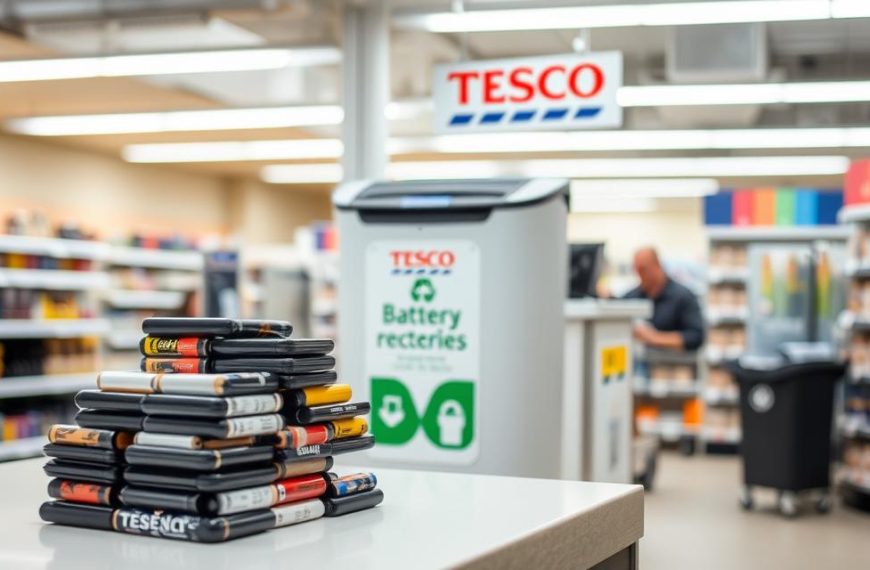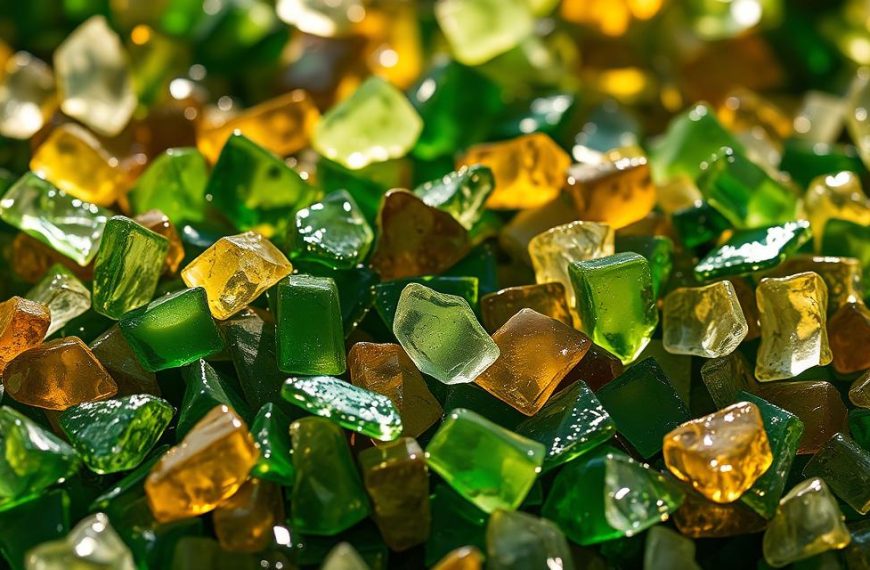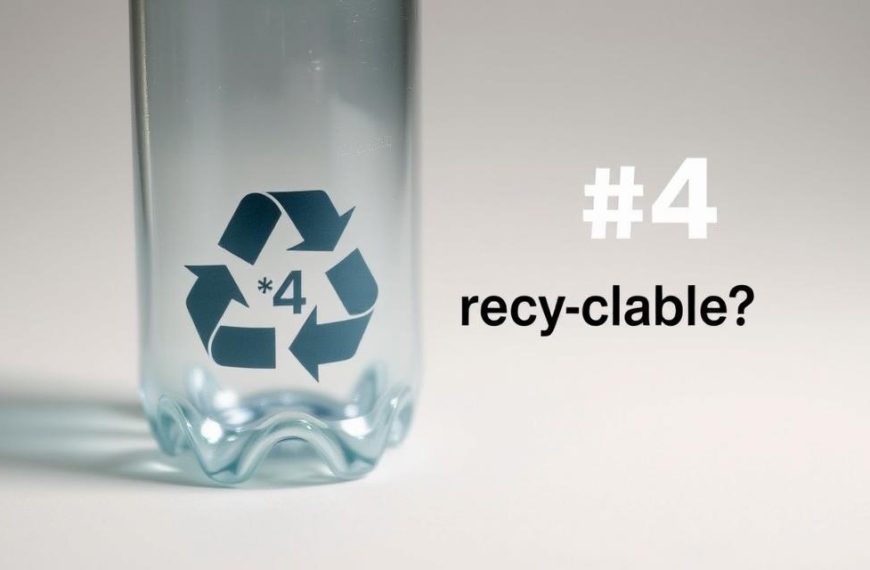Plastic recycling offers a unique opportunity to benefit both the environment and your wallet. By turning waste into resources, individuals and businesses can contribute to a cleaner planet while generating income. This dual-purpose approach makes it a practical solution for many.
Companies like TerraCycle and BoxCycle are leading the way by paying for specific types of waste. For example, TerraCycle accepts hard-to-recycle materials, while BoxCycle focuses on cardboard. These initiatives provide tangible ways to earn from everyday items.
State programs also play a role. Michigan’s 10¢/can redemption program is a great example of how local incentives can boost participation. With over 1 million plastic bottles purchased globally every minute, the potential for impact and income is significant.
From municipal programs to corporate buy-back initiatives, there are multiple ways to get started. Exploring these options can turn waste into a valuable resource.
Introduction to Recycling Plastic for Profit
Turning everyday items into cash while helping the environment is now a reality. The recycling industry is growing rapidly, with the global market for recycled plastics projected to reach $47.6 billion by 2028. This growth creates opportunities to earn cash while reducing waste.
Landfill costs average $55 per ton, but recycling offers a better alternative. Instead of paying to dispose of waste, individuals and businesses can generate revenue by selling recyclable materials. For example, 2,000 wine corks were sold for £195 on eBay, showcasing the potential of niche markets.
Redemption value programs in 10 U.S. states incentivize participation by offering cash for returned bottles and cans. These programs not only reduce litter but also provide a steady income stream for participants.
Corporate partnerships are another avenue. H&M offers £5 vouchers for old clothes, while MAC Cosmetics provides free lipstick for returned containers. These initiatives make recycling both profitable and rewarding.
TerraCycle’s school fundraising model is a standout example. Schools earn $50 per shipment of collected waste, turning recycling into a community effort. These programs highlight the financial and environmental benefits of sustainable practices.
Understanding the Basics of Plastic Recycling
Understanding the basics of plastic recycling is essential for effective waste management. This process transforms discarded materials into reusable resources, reducing environmental impact. It involves multiple steps, each crucial for ensuring the quality of recycled products.
What Types of Plastic Can Be Recycled?
Not all plastics are created equal. Common recyclable types include PET (used in bottles) and HDPE (found in milk jugs). These materials are widely accepted at recycling centers due to their high demand in manufacturing.
How Does the Recycling Process Work?
The recycling process begins with collection, where materials are gathered from homes and businesses. Next, sorting takes place at material recovery facilities (MRFs). Advanced optical scanners separate plastics by type and color.
Cleaning is a critical step. Food residue can reduce the value of recycled materials by up to 30%. After washing, plastics are shredded into flakes and then pelletized. These pellets serve as raw materials for new products.
Quality standards, such as ASTM D7611 for HDPE purity, ensure the final product meets industry requirements. Emerging chemical recycling methods are also gaining traction, offering solutions for complex plastics that traditional methods cannot handle.
How to Start Recycling Plastic for Money
Getting started with plastic recycling requires a clear plan and proper preparation. By following specific steps, individuals can ensure their efforts are both efficient and profitable. The process involves collecting, sorting, and preparing materials for sale.
Collecting and Sorting Plastic Waste
The first step is gathering plastic waste from homes, businesses, or community programs. Sorting is essential to separate different types of plastics, such as PET and HDPE. Proper categorization ensures higher value and easier processing at recycling centers.
Preparing Plastic for Recycling
Cleaning is a critical part of the preparation process. Food containers should be triple-rinsed to remove residue. Labels can be removed using steam or chemical solvents, depending on the material type. Proper cleaning increases the quality and marketability of the recycled materials.
Baling is another important step. Scrap yards often require plastic to be compressed into 50lb cubes for easier handling. Additionally, moisture content should be kept below 5% to secure premium pricing. For specialized applications, such as outdoor furniture, UV stabilization may be necessary to enhance durability.
Programs like Sainsbury’s 5p coupons and Iceland’s 10p per bottle initiative highlight the financial benefits of proper preparation. By following these protocols, individuals can maximize their earnings while contributing to a sustainable future.
Where to Sell Recycled Plastic
Finding the right outlets for recycled materials can significantly boost your earnings. Whether you’re working with large quantities or niche items, knowing where to sell is crucial. Local recycling centers and online platforms are two primary options to consider.
Local Recycling Centers
Local recycling centers are a reliable option for selling materials. These facilities often accept a wide range of plastics, including PET and HDPE. They provide immediate cash payouts based on weight and material type.
Some centers also offer drop-off points for convenience. Before visiting, check their accepted materials list to ensure your items qualify. This step saves time and ensures a smooth transaction.
Online Marketplaces for Recycled Materials
Online platforms like RecyclerFinder and Earth911 Exchange connect sellers with buyers nationwide. These platforms are ideal for bulk transactions. Shipping logistics, such as palletizing or LTL freight, may apply depending on the volume.
Niche markets, such as Etsy for craft plastics, offer unique opportunities. For example, 250 toilet tubes sold for £30 on eBay. Platforms like Gazelle and Music Magpie also specialize in electronics buyback, with prices reaching £750 for an iPhone 12 Pro Max.
When selling online, be aware of transaction fees. PayPal charges 2.9% plus $0.30 per sale. Factoring these costs into your pricing ensures maximum profitability.
Potential Earnings from Recycling Plastic
Earnings from recycling efforts vary widely based on several key factors. Understanding these variables helps maximize returns while contributing to sustainability. The type of material, its condition, and market demand all play a role in determining profitability.
How Much Can You Earn Per Pound?
The value of recycled materials depends on their type and quality. For example, PET bottles often fetch higher prices than mixed plastics. On average, clean PET can earn between $0.05 and $0.10 per pound, while HDPE may bring in $0.10 to $0.15.
Specialized materials, such as polypropylene (PP), see seasonal demand spikes. During summer, PP prices often rise due to increased manufacturing needs. Staying informed about these trends can help time sales for maximum profit.
Factors That Affect Your Earnings
Several elements influence the value of recycled materials. Contamination is a major concern, as food residue can reduce material value by up to 30%. For food-grade plastics, contamination must stay below 2% to maintain premium pricing.
Market fluctuations also impact earnings. Oil prices directly affect the demand for virgin plastics, which in turn influences recycled material prices. Additionally, transportation costs can add up, especially for smaller loads under 100 pounds, which cost around $1.50 per mile.
Certifications like ISRI specs can add a 15% premium to material value. Ensuring compliance with industry standards enhances both profitability and marketability.
| Factor | Impact on Earnings |
|---|---|
| Contamination | Reduces value by up to 30% |
| Market Fluctuations | Oil prices affect demand |
| Transportation Costs | $1.50/mile for |
| Certifications | Adds 15% premium |
Environmental Benefits of Recycling Plastic
Recycling plastic not only supports environmental sustainability but also significantly reduces waste and conserves valuable resources. By transforming discarded materials into reusable products, this process minimizes the strain on landfills and promotes a circular economy.
Reducing Landfill Waste
Every ton of plastic recycled prevents approximately 3.8 barrels of oil from being used in virgin production. This reduction in petroleum consumption directly impacts the environment by lowering greenhouse gas emissions. Additionally, recycling keeps plastic out of landfills, which are already overwhelmed with waste.
For example, recycling 1 kg of PET saves 100 liters of water. This conservation of natural resources is crucial for maintaining ecological balance. The Ellen MacArthur Foundation highlights how circular economy models can further enhance these benefits.
Conserving Natural Resources
Recycling uses 88% less energy compared to producing new plastic from raw materials. This energy efficiency translates into significant cost savings and reduced environmental impact. Synthetic fuels derived from polypropylene waste are another innovative byproduct of recycling.
By reducing the need for virgin materials, recycling helps conserve finite resources like oil and natural gas. This approach not only supports sustainability but also fosters long-term environmental health. For more insights, explore the benefits of recycling plastics.
Tips for Maximizing Your Recycling Efforts
Maximizing returns from recyclables involves leveraging local networks and staying updated. Strategic approaches ensure higher profitability and environmental impact. Below are actionable methods to enhance efficiency.
Partnering with Local Businesses
Collaborating with nearby companies amplifies collection volumes. For example, TerraCycle’s free programs partner with retailers to accept hard-to-recycle items. Cartridge Recycling UK pays £20 for XL ink cartridges, creating mutual benefits.
“Business partnerships increase recycling rates by 40% in communities with shared drop-off points.”
Consider these steps for successful partnerships:
- Identify businesses with high plastic waste output (e.g., supermarkets, offices).
- Negotiate bulk pickups to reduce transportation costs.
- Use Earth911’s Recycling Locator to find nearby collaborators.
Staying Informed About Recycling Programs
Policy updates and incentives change frequently. California’s Redemption Value adjustments, for instance, directly affect payout rates. Subscribing to trade groups like the National Recycling Coalition (NRC) provides timely alerts.
| Resource | Benefit |
|---|---|
| ISRI Specs Training | Ensures material meets premium standards |
| NRC Membership | Access to industry trends and grants |
| Earth911 Alerts | Local program changes |
Always verify recycler certifications to avoid greenwashing. Third-party audits, like those from Green Seal, confirm legitimacy.
Conclusion
Turning waste into profit while protecting the planet is a win-win solution. With realistic earnings ranging from $75 to $500 monthly, the financial benefits are clear. Additionally, recycling one ton of plastic saves 16.3 barrels of oil, making it a powerful tool for environmental conservation.
Starting small, such as collecting 50 pounds monthly, is an accessible way to begin. Programs like TerraCycle’s fundraising initiatives also highlight the community impact of these efforts. By involving others, the benefits multiply, creating a ripple effect of positive change.
For those ready to take the next step, contacting a local material recovery facility (MRF) for pricing details is essential. Explore more about the basics of recycling plastic to maximize both earnings and environmental impact.
FAQ
What types of plastic can be recycled for cash?
How much money can be made per pound from recycled plastic?
FAQ
What types of plastic can be recycled for cash?
Common recyclable items include bottles, containers, and scrap materials like PET (#1) and HDPE (#2). Check local programs for accepted products.
How much money can be made per pound from recycled plastic?
Earnings vary, but centers typically pay
FAQ
What types of plastic can be recycled for cash?
Common recyclable items include bottles, containers, and scrap materials like PET (#1) and HDPE (#2). Check local programs for accepted products.
How much money can be made per pound from recycled plastic?
Earnings vary, but centers typically pay $0.05–$0.20 per pound for clean, sorted waste. Aluminum and cardboard often yield higher returns.
Where is the best place to sell collected plastic?
Local centers, scrap yards, or online platforms like Craigslist and RecycleBank offer payment. Some companies even provide pickup services.
Does recycling plastic really help the environment?
Absolutely. Reusing materials reduces landfill trash, conserves resources, and lowers pollution—benefiting the planet long-term.
How should plastic be prepared before selling?
Remove caps, rinse containers, and separate by type. Clean, sorted items fetch better prices at recycling centers.
Can other materials like glass or aluminum be recycled for extra cash?
Yes. Many programs accept cans, wine bottles, and boxes alongside plastic, often at higher rates per pound.
Are there seasonal changes in recycling demand?
Some materials, like holiday-related cardboard, spike in value. Stay updated with local programs for peak earning periods.
FAQ
What types of plastic can be recycled for cash?
Common recyclable items include bottles, containers, and scrap materials like PET (#1) and HDPE (#2). Check local programs for accepted products.
How much money can be made per pound from recycled plastic?
Earnings vary, but centers typically pay
FAQ
What types of plastic can be recycled for cash?
Common recyclable items include bottles, containers, and scrap materials like PET (#1) and HDPE (#2). Check local programs for accepted products.
How much money can be made per pound from recycled plastic?
Earnings vary, but centers typically pay $0.05–$0.20 per pound for clean, sorted waste. Aluminum and cardboard often yield higher returns.
Where is the best place to sell collected plastic?
Local centers, scrap yards, or online platforms like Craigslist and RecycleBank offer payment. Some companies even provide pickup services.
Does recycling plastic really help the environment?
Absolutely. Reusing materials reduces landfill trash, conserves resources, and lowers pollution—benefiting the planet long-term.
How should plastic be prepared before selling?
Remove caps, rinse containers, and separate by type. Clean, sorted items fetch better prices at recycling centers.
Can other materials like glass or aluminum be recycled for extra cash?
Yes. Many programs accept cans, wine bottles, and boxes alongside plastic, often at higher rates per pound.
Are there seasonal changes in recycling demand?
Some materials, like holiday-related cardboard, spike in value. Stay updated with local programs for peak earning periods.
.05–
FAQ
What types of plastic can be recycled for cash?
Common recyclable items include bottles, containers, and scrap materials like PET (#1) and HDPE (#2). Check local programs for accepted products.
How much money can be made per pound from recycled plastic?
Earnings vary, but centers typically pay $0.05–$0.20 per pound for clean, sorted waste. Aluminum and cardboard often yield higher returns.
Where is the best place to sell collected plastic?
Local centers, scrap yards, or online platforms like Craigslist and RecycleBank offer payment. Some companies even provide pickup services.
Does recycling plastic really help the environment?
Absolutely. Reusing materials reduces landfill trash, conserves resources, and lowers pollution—benefiting the planet long-term.
How should plastic be prepared before selling?
Remove caps, rinse containers, and separate by type. Clean, sorted items fetch better prices at recycling centers.
Can other materials like glass or aluminum be recycled for extra cash?
Yes. Many programs accept cans, wine bottles, and boxes alongside plastic, often at higher rates per pound.
Are there seasonal changes in recycling demand?
Some materials, like holiday-related cardboard, spike in value. Stay updated with local programs for peak earning periods.
.20 per pound for clean, sorted waste. Aluminum and cardboard often yield higher returns.
Where is the best place to sell collected plastic?
Local centers, scrap yards, or online platforms like Craigslist and RecycleBank offer payment. Some companies even provide pickup services.
Does recycling plastic really help the environment?
Absolutely. Reusing materials reduces landfill trash, conserves resources, and lowers pollution—benefiting the planet long-term.
How should plastic be prepared before selling?
Remove caps, rinse containers, and separate by type. Clean, sorted items fetch better prices at recycling centers.
Can other materials like glass or aluminum be recycled for extra cash?
Yes. Many programs accept cans, wine bottles, and boxes alongside plastic, often at higher rates per pound.
Are there seasonal changes in recycling demand?
Some materials, like holiday-related cardboard, spike in value. Stay updated with local programs for peak earning periods.
Releated Posts
How to Recycle Ink Cartridges Tesco Step-by-Step
Tesco’s Clubcard ink cartridge recycling programme is an environmentally responsible initiative that rewards customers with valuable Clubcard points.…
Coat Hanger Recycling Tesco: Sustainable Practices Explained
The UK is grappling with a significant environmental issue: plastic waste from hangers. Every year, approximately 8 billion…
What Can You Recycle at Boots? A Complete List of Accepted Items
The Boots recycling scheme is a fantastic initiative that enables customers to recycle a variety of health, beauty,…
Tesco Battery Recycling: How to Recycle Batteries
The improper disposal of batteries poses a significant threat to the environment. In the UK, the average person…
